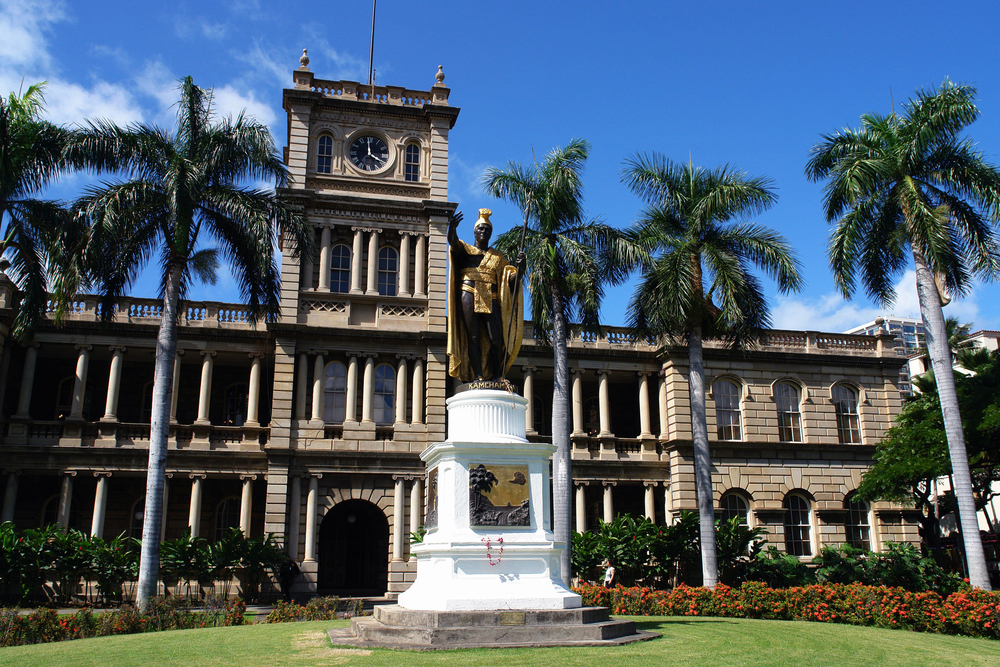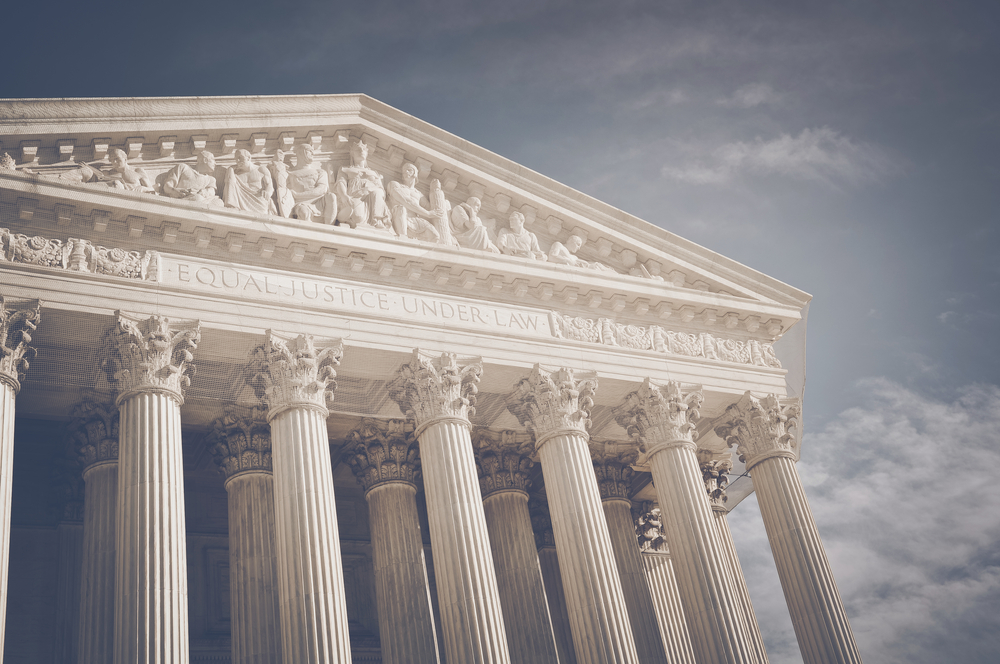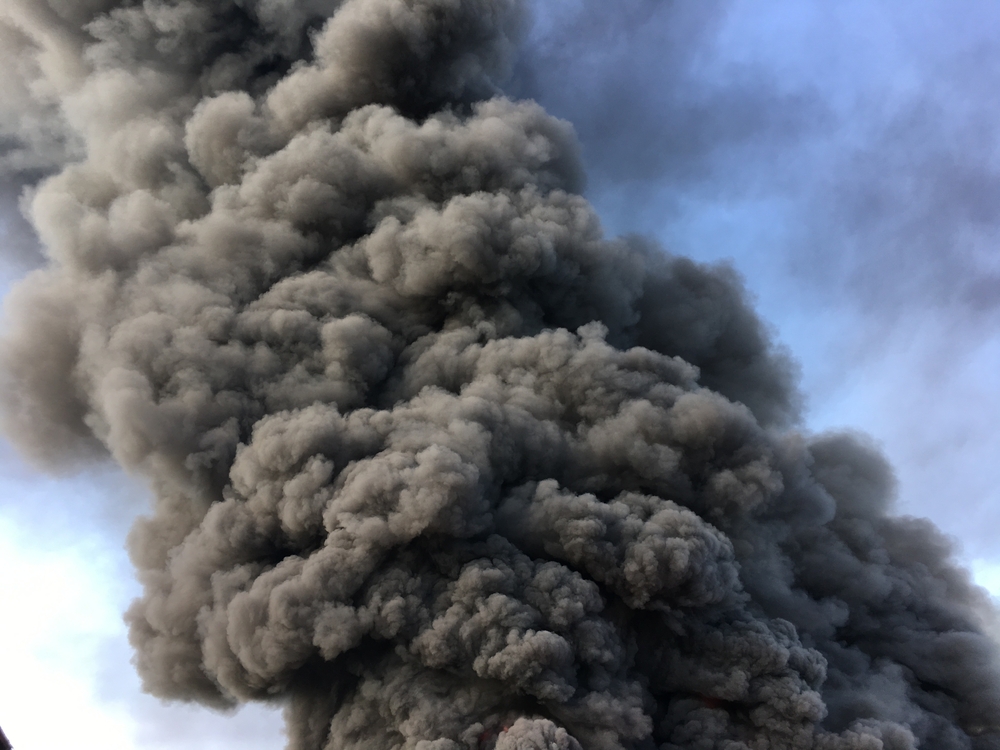A recent decision by Hawaii’s Supreme Court rejected an appeal by lawyers representing Big Oil. It perhaps pushed the plaintiffs, the city and county of Honolulu, towards achieving something that has not been done before - having a lawsuit against fossil fuel companies go to trial for their alleged part in extreme climate change.
On Oct. 31, Hawaii’s Supreme Court weighed in on a climate accountability lawsuit brought on by the city and county of Honolulu against close to a dozen oil companies. The lawsuit, first filed in 2020, alleges the companies used misleading marketing practices and deceived the public about climate change to drive up their profit.
The lawsuit alleges that the oil and gas companies knew for decades about the dangers of burning fossil fuels to the climate and concealed the information from the public. The misinformation has led to extreme costs to fix damaged infrastructure due to severe temperatures and heat waves linked to climate change. The plaintiffs are seeking to have the companies be responsible for the cost of the damage.
Lawyers for the oil and gas companies argued that the lawsuit sought to regulate interstate commerce, which does not fall under local government and should be moved to a federal court. However, in March, a state judge rejected those arguments, causing the defendants to file an appeal to the state’s Supreme Court.
When Chief Justice Mark E. Recktenwald detailed the unanimous decision by the court to deny the appeal, he wrote that it was based on “...torts committed in Hawaii that caused alleged injuries in Hawaii.”
The case now enters the discovery phase for plaintiffs to collect more evidence to prove their case. The state court can now set a trial date.
What does the lawsuit mean for the people of Hawaii? Hawaii is dealing with the effects of the climate crisis long term. However, as the lawsuit progresses, Big Oil will be pressed to account for its actions. If the people of Honolulu win the lawsuit, the oil companies would be responsible for reimbursing millions of dollars to the public for its deceit.
A Look at Other Climate Lawsuits
The Honolulu lawsuit is not the only active lawsuit concerning the impact of climate change. About two dozen similar suits are filed against Big Oil in other courts around the country.
Maui: A lawsuit filed by the County of Maui is similar to Honolulu’s and was also set into motion in 2020. While pointing the finger at companies, including Exxon, Chevron, and BP, along with others, it also alleges that they kept information concerning fossil fuels and the impact on the climate from the public. However, while the people of Maui struggle to recover from the August wildfires, the lawsuit is delayed due to procedural issues.
Montana: In Montana, a landmark climate lawsuit was decided in August with 16 young residents between the ages of 5 and 22 as plaintiffs. The case focused on the relationship between government policies and the acceleration of climate change, with the plaintiffs filing the suit against the state of Montana, the Governor, the Montana Department of Environmental Quality, the Montana Department of Natural Resources and Conservation, the Montana Department of Transportation, and Montana Public Service Commission.
The plaintiffs, represented by Our Children’s Trust, a public interest law firm that also has a pending lawsuit in Hawaii, challenged provisions of Montana’s State Energy Policy for promoting fossil-fuel development and the Montana Environmental Policy Act for disallowing the state from recognizing greenhouse gas emissions when reviewing requests to extract fossil fuel.
The trial began in June and included scientists who detailed how increases in greenhouse gas emissions were causing health and environmental damage and how we will see a continued increase in the effects if not corrected. Plaintiffs accused their state government officials of putting their future at risk.
In the ruling, made on August 22, Judge Kathy Seeley of Montana District Court ruled in favor of the youth. In her decision, the judge wrote that any of the laws limiting the ability of regulators to consider climate effects were unconstitutional and that the state of Montana’s emissions “have been proven to be a substantial factor,’’ adding that residents of Montana “have a fundamental constitutional right to a clean and healthful environment, which includes climate as part of the environmental life-support system.”
Judge Seeley also conceded that Montana has 5,000 gas wells, 4,000 oil wells, four oil refineries, and six coal mines. Such a collection, she said, causes Montana to be a “major emitter of greenhouse gas emissions in the world, in absolute terms, in per person terms, and historically.”
Hawaii and Our Children’s Trust: Along with keeping an eye on the lawsuits in Honolulu and Maui, next summer, the Environmental Court of the First Circuit Court of Hawaii is scheduled to consider the lawsuit filed by Our Children’s Trust. In this one, 12 youth plaintiffs allege wrongdoing by the Hawaiian government and the state’s Department of Transportation.
The lawsuit alleges Hawaii’s transportation department operates in “... a manner that breaches [the state’s] mandatory duty ... to 'conserve and protect Hawaii’s natural beauty and all natural resources.”
The court will hear the lawsuit sometime between June 24 and July 12, 2024.
Hawaii Wildfires Update
The timing of Hawaii’s Supreme Court decision also comes on the heels of the deadliest outbreak of wildfires in recent U.S. history. It was in August when a series of wildfires roared through Maui, claiming 99 lives and destroying 2,100 acres of land in the Lahaina area. While officials have not given a final determination on the root cause of the fire, blame has been placed on Hawaiian Electric power lines that collapsed during high winds during Hurricane Dora, and lawsuits have been filed. Experts believe sparks from the fallen lines turned into flames and blew through the region’s dry vegetation. As Hawaiians know all too well, in 2023, extreme weather events like hurricanes and dry vegetation are marks of climate change.
Along with the Lahaina fires, in mid-October, new, unrelated fires broke out in an area in Hawaii known as Mililani Mauka. While these recent fires have not threatened humans, more than 1,600 acres of land have been destroyed by flames, and the situation has left residents in nearby towns fearing extreme weather events will continue to become even more dire.














